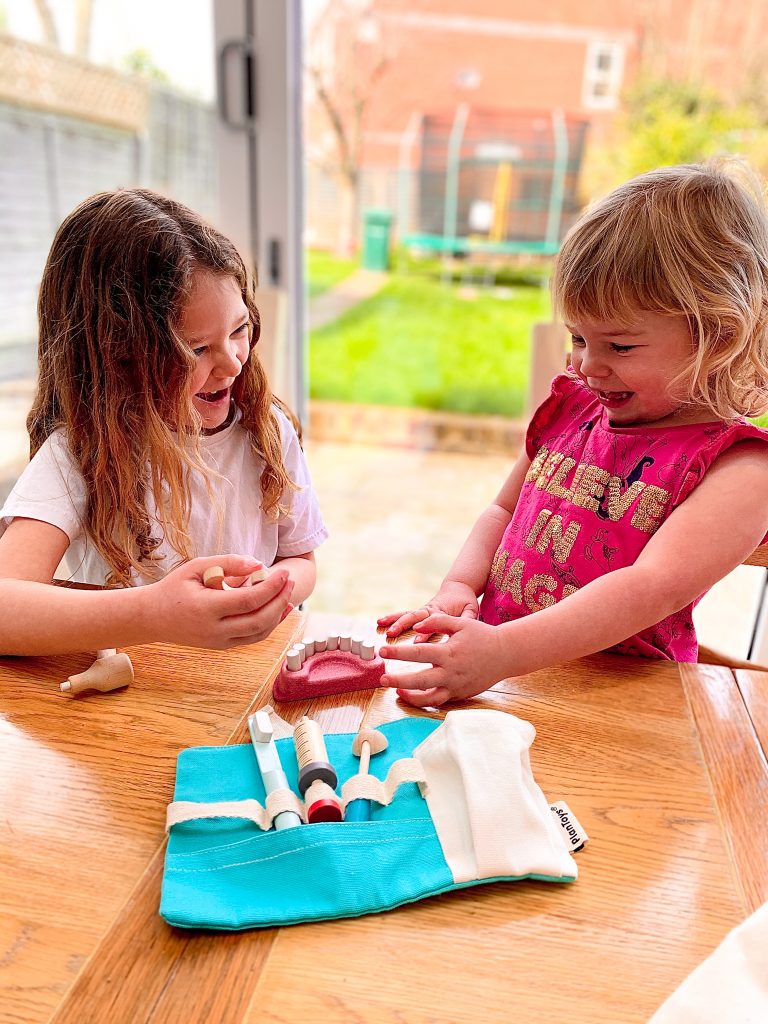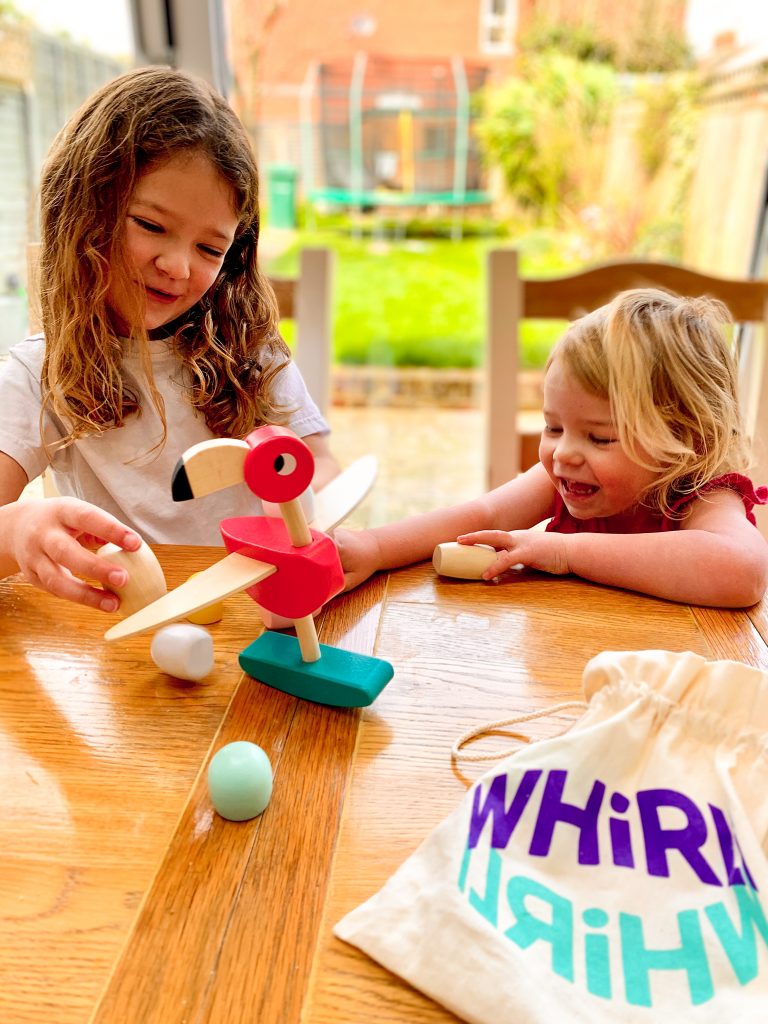As a certified infant sleep consultant and a mum of two little girls, I give regular advice to families on how to get the precious sleep that they need. While some kids are great at going to bed when they need to, many insist they’re just not tired to avoid bedtime. Kids need our help to get into a good sleep routine so that we can meet our own sleep needs too! Here are my top 5 tips to help your children unwind before bedtime.
1) Play during daytime
Play is essential for child development as it contributes to their physical, social, cognitive and emotional well-being. In particular, daytime play outside (the garden for now) is beneficial to our circadian rhythm (our internal body clock), because when we are exposed to sunlight, our body increases the production of serotonin (a hormone used to synthesise melatonin, our sleep hormone). In return, we will get a good sleep and wake up energised – ready to play and learn effectively! Also, playing in the garden is a fun way to get the kids to burn off excess energy.
2) Set a consistent bedtime routine
Children are not the best judge on when they need to go to bed, so it’s down to us to set a consistent bedtime routine. According to sleep studies, when a child’s bedtime is irregular, their behaviour is often worse. They may be irritable, moody, and lose focus at school or nursery.
During the times of self-isolation, it is more important than ever to encourage or maintain a routine for the whole family which can help to minimise stress. This could mean creating a set time for playing, learning, eating and sleeping so kids have a clear expectation of what will be happening that day.
3) Turn off the screens before bedtime
Screens can affect how quickly we fall asleep and stay asleep. The blue and white light from our gadgets can suppress melatonin levels (our sleep hormone) and delay how sleepy we feel. Also, playing video games or watching tv can produce adrenaline in the body, delaying sleep further. This is why we should avoid screen time (no more Peppa pig) for at least an hour before bedtime.
4) Choose toys that can help kids wind down
Play can also be part of a bedtime/naptime routine – quiet and relaxing play will lower your child’s activity level. We should avoid bright and noisy toys or any high activity play which can overstimulate your kids. You can even use pretend play to help kids relax. For example, they can put their favourite toy ‘to bed’ and subconsciously learn to anticipate bedtime. This type of play can also help them understand and express feelings through the re-enactment of experiences, which sets the scene for the “end of the day chat”.
Wooden toys are especially soothing and appealing to a child’s sense of touch. A personal favourite of mine is the Plan toys dentist set which is great for emulating the adult world, but also for practising fine motor skills. Another one is the Janod zigolos flamingo balancing game because it challenges dexterity without being overstimulating. What’s fantastic about Whirli is the large variety of exciting toys to choose from to keep your little ones amused.


5) Build your own bedtime routine
There is no definitively right or wrong way to set up a bedtime routine. Ideas could include a relaxing bathtime, a bedtime story, goodnight cuddles, quiet play, listening to relaxing music and having an end of the day chat (great for mindfulness). These activities contribute to positive parent-child attachment, development and sleep. For example, bathtime as part of a routine can encourage early learning of self-care and hygiene. The power of the routine also depends on how you do it such as dimming the lights and keeping a calm voice.
I hope these tips have given you some ideas on how to help your kids unwind before bedtime so you and your family can get the rest you need.